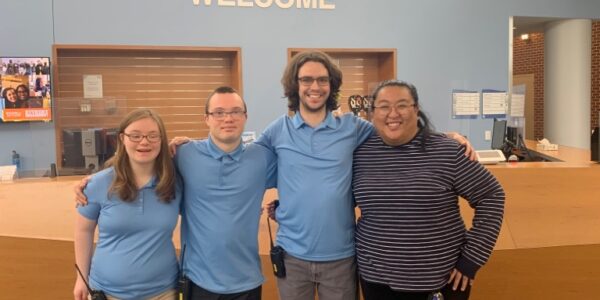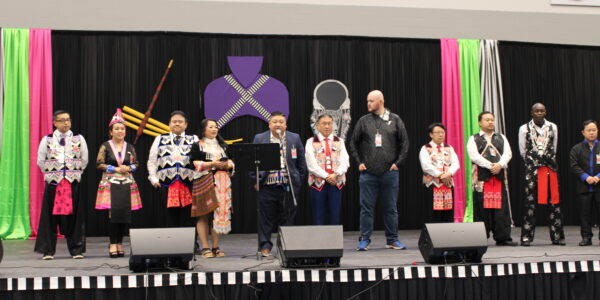How Strategic Campus Center Management Creates Lasting Institutional Impact
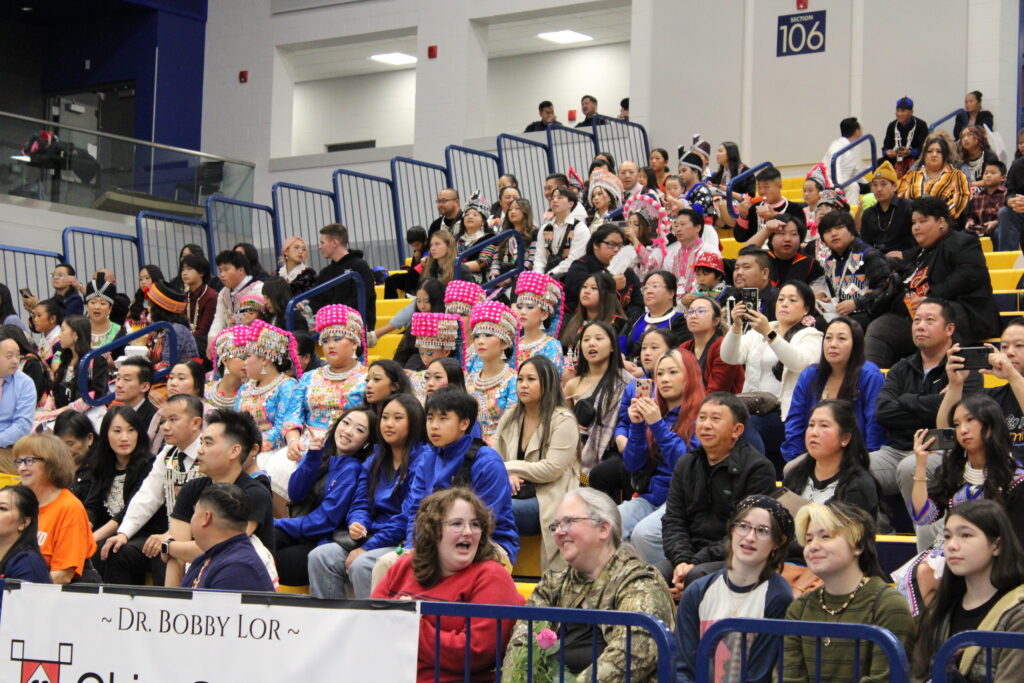 Colleges and universities are shaped by the communities they serve, just as they, in turn, shape those communities. The relationship is symbiotic—students, faculty, and local residents interact daily, influencing one another and building a shared sense of identity. Campus centers, from recreation and student hubs to wellness and event spaces, serve as the physical and cultural intersections where these connections are fostered.
Colleges and universities are shaped by the communities they serve, just as they, in turn, shape those communities. The relationship is symbiotic—students, faculty, and local residents interact daily, influencing one another and building a shared sense of identity. Campus centers, from recreation and student hubs to wellness and event spaces, serve as the physical and cultural intersections where these connections are fostered.
A strong campus-community bond enhances student engagement, strengthens regional partnerships, and creates economic opportunities that benefit both the institution and the surrounding area. Whether at a community college, regional institution, or large public university, the role of campus centers extends far beyond the students who use them. They are spaces where partnerships take root, where lifelong learning thrives, and where a sense of belonging is cultivated for all who step through their doors.
At community colleges, where students often balance education with work and family commitments, campus centers must be flexible, accessible, and designed to support career pathways and personal growth. At regional and public institutions, multi-use spaces and public-private partnerships can transform campus centers into thriving, revenue-generating assets that benefit both students and the community.
To fully harness this potential, institutions must be intentional about how their campus centers are managed. Through strategic programming, dynamic operations, and strong community partnerships, colleges can create vibrant, multipurpose spaces that enhance student life while reinforcing their broader role in the community. CENTERS specializes in helping institutions maximize these opportunities, ensuring that campus centers serve as true hubs of engagement, growth, and connection.
Strengthening Workforce Pathways Through Campus Centers
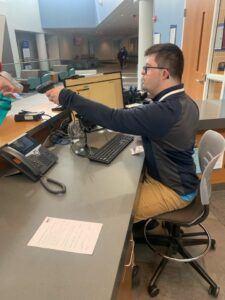 Colleges that actively integrate their campus centers into workforce development efforts create lasting benefits for both students and the local economy. Community colleges, in particular, play a crucial role in preparing students for careers, and campus centers provide natural extensions of these efforts by offering employment, training, and experiential learning opportunities. At Harper College, the Career Skills Institute internship program supports young adults with intellectual disabilities by providing real-world work experience within campus recreation. Since 2019, Harper’s Campus Recreation Department has served as an internship site for these students, helping them build skills in a structured, supportive environment. The program has evolved to incorporate training manuals, guided projects, and mentoring from part-time student employees. By embedding career-readiness programs within its campus center, Harper College is helping students gain valuable experience while reinforcing its role as an institution committed to inclusive workforce development. (Read More)
Colleges that actively integrate their campus centers into workforce development efforts create lasting benefits for both students and the local economy. Community colleges, in particular, play a crucial role in preparing students for careers, and campus centers provide natural extensions of these efforts by offering employment, training, and experiential learning opportunities. At Harper College, the Career Skills Institute internship program supports young adults with intellectual disabilities by providing real-world work experience within campus recreation. Since 2019, Harper’s Campus Recreation Department has served as an internship site for these students, helping them build skills in a structured, supportive environment. The program has evolved to incorporate training manuals, guided projects, and mentoring from part-time student employees. By embedding career-readiness programs within its campus center, Harper College is helping students gain valuable experience while reinforcing its role as an institution committed to inclusive workforce development. (Read More)
Similarly, at Moraine Valley Community College, campus recreation is not just about wellness—it is a point of connection that introduces young people to higher education and future career opportunities. The FitRec summer camp program engages children in a mix of fitness, arts, and educational activities while familiarizing them with campus spaces such as the science building, library, and police department. The success of this program has led to year-round offerings, including a Spring Break STEM Camp that combines classroom learning with recreation, developed in partnership with Moraine Valley’s Corporate, Community, and Continuing Education Department. Many former camp participants and counselors later enroll as students, demonstrating how campus centers can be early entry points to higher education while also providing critical childcare and enrichment programs for the community.
Sustaining Campus Centers Through Creative Revenue Models
 While under increasing budgetary pressure, institutions often look to creative revenue generation to help offset operating costs and provide sustainability. Campus centers that build strategic partnerships with corporate sponsors, health programs, and local organizations create additional funding sources that keep facilities vibrant without placing undue financial strain on students’ fees.
While under increasing budgetary pressure, institutions often look to creative revenue generation to help offset operating costs and provide sustainability. Campus centers that build strategic partnerships with corporate sponsors, health programs, and local organizations create additional funding sources that keep facilities vibrant without placing undue financial strain on students’ fees.
Moraine Valley’s partnership with WellHub (formerly GymPass) exemplifies this approach. By integrating the campus recreation center into a corporate wellness network, Moraine Valley provides affordable access to local employees while generating consistent revenue through memberships and check-in reimbursements. This model has allowed FitRec to grow its membership base without requiring additional marketing or staffing resources, demonstrating how institutions can expand access while maintaining financial sustainability.
Additionally, serving older adults through wellness programming has proven to be a successful strategy for many institutions. At multiple CENTERS-managed locations, Silver Sneakers and water aerobics programs provide an affordable fitness option for older adults while ensuring that campus centers remain active during off-peak hours. These programs not only bring in additional revenue but also strengthen intergenerational ties between students and the community.
At Moraine Valley, this effort has expanded beyond traditional fitness classes to include exergaming programs for older adults. Originally designed for children, FitRec’s interactive X-Rooms were reintroduced for adult members in Fall 2024. The weekly exergaming class has quickly gained traction, particularly among women aged 65 and older who appreciate the cognitive and physical benefits of interactive fitness. By broadening its offerings, Moraine Valley is demonstrating how campus centers can serve all age groups while enhancing financial sustainability. (Read more)
Hosting Events That Strengthen Community Ties
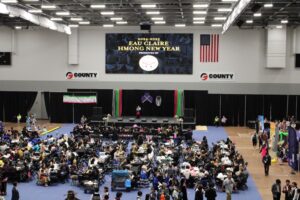 Campus centers are essential in bringing people together for cultural celebrations, athletic competitions, and civic gatherings. By hosting large-scale events, institutions reinforce their presence as cultural and economic anchors within their communities. At the University of Wisconsin–Eau Claire’s Sonnentag Center, the return of the Hmong New Year celebration in 2024 underscored the importance of campus spaces in preserving and honoring cultural traditions. After a five-year hiatus, this event provided a space for families, performers, and vendors to celebrate Hmong heritage in a venue that accommodated a larger turnout than ever before. The Sonnentag’s flexibility ensured the event could continue regardless of weather conditions, strengthening its role as a space for inclusivity and community connection. (Read More)
Campus centers are essential in bringing people together for cultural celebrations, athletic competitions, and civic gatherings. By hosting large-scale events, institutions reinforce their presence as cultural and economic anchors within their communities. At the University of Wisconsin–Eau Claire’s Sonnentag Center, the return of the Hmong New Year celebration in 2024 underscored the importance of campus spaces in preserving and honoring cultural traditions. After a five-year hiatus, this event provided a space for families, performers, and vendors to celebrate Hmong heritage in a venue that accommodated a larger turnout than ever before. The Sonnentag’s flexibility ensured the event could continue regardless of weather conditions, strengthening its role as a space for inclusivity and community connection. (Read More)
At Longwood University, the Joan Perry Brock Center has become a major destination for regional entertainment and athletics. Before the center’s opening, residents of Central Virginia often had to travel to Richmond for major sporting events. Now, the center regularly hosts high-profile events such as Harlem Globetrotters exhibitions and high school sports tournaments. These events provide increased exposure for student-athletes while strengthening college recruitment efforts and offering local families greater access to live entertainment. By establishing the Joan Perry Brock Center as a regional hub, Longwood University has expanded its reach and reinforced its connection with the surrounding community. (Read More)
Why Institutions Partner with CENTERS
Building strong town-gown relations is mutually beneficial to institutions and the surrounding communities. Institutions thrive when they foster environments where students can engage meaningfully with their peers, faculty, and the broader community. Through intentional programming, strategic partnerships, and financially sustainable operations, campus centers become more than just facilities—they become gathering places that enhance student life and strengthen the institution’s role in the community.
CENTERS partners with colleges and universities to maximize these opportunities, ensuring that campus centers serve as hubs of engagement, economic development, and lifelong learning. By designing programs that bring together students, professionals, and community members, CENTERS helps institutions build lasting connections that benefit both their campuses and the broader communities they serve.

 Robert Huizenga
Robert Huizenga  Veronica Tantoco
Veronica Tantoco  Sharlae Vanis
Sharlae Vanis 

